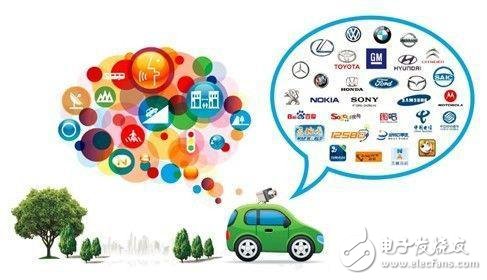Some people say that 2014 is the first year of the Internet of Vehicles. The Internet is like an immigrant who has just arrived in the American continent. He wants to occupy this virgin land, and the original people of this land are not Indians. It is so weak. Immigrants from the internet From foreign Apple CarPlay, Google Android Auto to domestic Baidu launched CarNet, Tencent released Lubao box and Ali announced a strategic cooperation with SAIC, some companies have mature ideas, like Apple is to give iPhone, iPad users are more A better experience in multiple scenarios, Google's appeal is to let more car owners use their own GMS series services. On the contrary, it is the three big domestic BAT giants. Baidu Tencent focuses on the stock market, but CarNet and Lubao are more like a transitional product. The follow-up on how to develop the industry is different. In addition to the fact that the initial two-word press release has few follow-up actions, Ali SAIC, which makes people "unclear", is really skeptical that they are hyping. The original people’s backwaters In fact, the automakers have not always had no action, but their small fights have not caught everyone's attention. Ford, which has always called itself a "technology company," has been in the second generation, and has its own Genivi open source. In the field of vehicle and mobile phone interconnection, decentralized open source standards will rapidly emerge. Such open source standards should be used to interface with in-vehicle systems and mobile Internet applications on the one hand, and sufficient for OEMs on the other. Custom space. Genivi's open source standard SDL (Smart Device Link) should cause more attention from OEMs. At present, SDL has received support from mainstream Internet companies such as Gaode and Baidu in China. For automakers, cooperation with Internet companies will be a major trend in the future, but how to do it requires a good user experience, open use of data, and industrial ecology. Third party Since the era of mobile Internet, the days of telecom operators have been difficult. The OTT business such as WeChat has always been a heart disease. However, the emergence of the Internet of Vehicles also allows these operators to see the opportunity. 4G means opportunities and challenges for operators' car networking business. LTE's high bandwidth and low latency can carry high-definition audio and video services, which makes real-time video diagnostics, accurate real-time traffic, streaming audio and video entertainment services possible; but how to grasp the user's pain points to truly provide a good service experience, how to bandwidth Finding a balance between costs and how to implement platform-level layout is a challenge for operators. In addition to 4G, this year's domestic virtual operating licenses have also received much attention. Virtual operators such as Ali, Jingdong, Suning, Gome, Snail, and Dixon will all have an impact on the Internet of Vehicles market. Moreover, companies like Ali, which have both Internet resources and operating resources, are a time bomb for traditional telecom operators. There are more and more players in the field of car networking. Automakers, Internet companies, and telecom operators all have strong strengths in their respective fields. Whether the modern version of the "Qingxiong Zhongyuan" has to be repeated, the hegemons are choosing to cooperate. Or do you want to create a big situation? It can only be said that the field of car networking is about to open the "Three Kingdoms era", and a good show is just around the corner. Lei Feng Network and AutoAPP invited all the majors to preview the war for readers. 5 Burner Gas Hob,5 Burner Gas Cooker,5 Burner Hob,Glass Gas Hobs xunda science&technology group co.ltd , https://www.gasstove.be